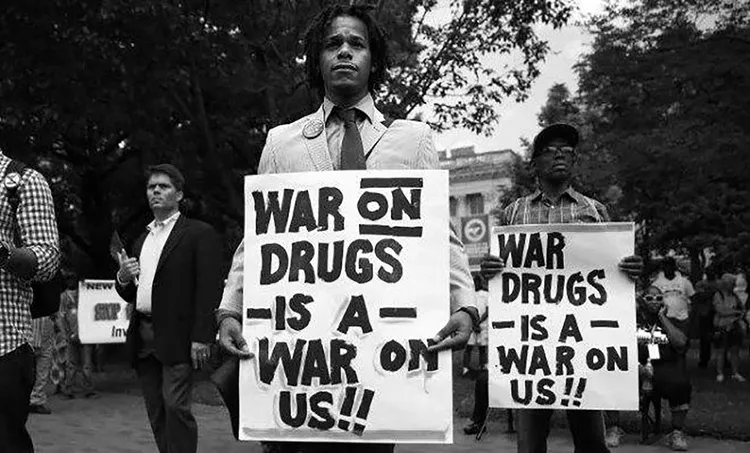More civil servants fall victim to Thailand’s drug ‘war’

Twenty-one civil servants in Khon Kaen tested positive for drugs during a recent campaign in Thailand’s “war” on drugs.
More than 760,000 pills, many weapons, explosives and rounds of ammunition were seized during raids at 900 locations in the province in the previous four weeks, said Governor Kraisorn Kongchalard.
Some 192 suspects were arrested for firearms offences with 180 weapons and 500 rounds of ammunition seized. Two more face charges of illegally selling firearms and explosives. Police also apprehended 1,700 suspects on drug charges.
Drug tests were conducted on civil servants across the province, with 21 positive results. Those who tested positive will be dismissed or face criminal charges.
Provinces and police have stepped up drug and weapon operations in the month since the Nong Bua Lam Phu daycare massacre. Last week police claimed to have rounded up more than 60,000 suspects and seized thousands of weapons, narcotics, and weapons cases since October 10.
Over 11,000 cases involved firearms, explosives, and ammunition, many of which had been previously disclosed. National Police Chief Pol Gen Damrongsak Kittiprapas said police had seized weapons, explosives and ammunition.
Also last week, police tested staff at five venues on Bangla Road in Patong for drugs, finding only one positive result, which was still deemed newsworthy onlyonly one positive result, which was still deemed a newsworthy event.
Patong Police Chief Colonel Sujin Nilbodee said the campaign aims to “suppress illegal drug usage and sales,” but did not say how the action would help stem the tidal wave of drugs washing in from Myanmar.
So far, there have been no significant victories in Thailand’s recently declared “war” on drugs as police continue to target the demand side – civil servants, tourists, and those involved in the tourism and entertainment industries – hundreds of miles from the Myanmar border. Pursuing campaigns on the demand side of the drug problem, a familiar tactic which involves killing or criminalising poor people has never achieved any success and probably never will.
No one wants to see a real war against heavily-armed, well-financed criminals in remote mountain forests. There is very little money to be made by field operatives in such situations. Sympathetic media coverage is easily obtained from a Bangkok-based media by arresting civil servants in their air-conditioned offices or rubbing shoulders with conference delegates. While that situation continues, there is little reason to take effective action along the Myanmar border.

Latest Thailand News
Follow The Thaiger on Google News:


























